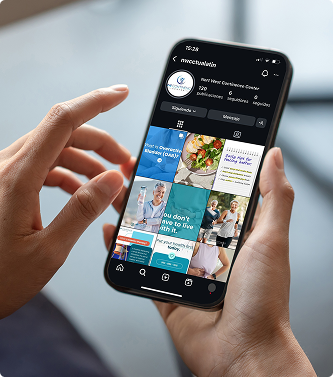5 Essential Things Your Surgeon Wants You to Know
Preparing for joint replacement surgery involves more than showing up at the hospital. It’s a physical, emotional, and even spiritual process. Whether you’re the one going into surgery or supporting someone else, knowing what to expect—and what really matters—can ease the anxiety and lead to better outcomes.
In this article, we’ll cover five essential things every surgeon wants you to know before joint replacement surgery, alongside tips for preparation, recovery, and offering meaningful support. If you want to know what to say to someone before surgery, this guide is for you. It will help you prepare and tell you what you can and cannot take before the procedure.
1. Understanding the Surgical Checklist: More Than Just Paperwork
You may have heard of the “5 surgical checklist,” a protocol used by medical teams to ensure safety and coordination. This list includes:
- Verifying patient identity and procedure
- Confirming surgical site
- Reviewing patient allergies and medications
- Ensuring proper equipment is available
- Final team pause before incision
While it may sound procedural, it reflects a broader truth: preparation saves lives. Your surgeon isn’t just thinking about the joint—they’re thinking about every detail that contributes to a safe and successful operation.
2. Medications Matter—Even the Ones You Don’t Think About
A frequent concern before surgery is, “Can I take Claritin before surgery?” or “Is Benadryl safe the night before?” These are valid questions.
Surgeons and anesthesiologists are often cautious with antihistamines before surgery. Medications like Benadryl, Flonase, Sudafed, and ZzzQuil can interfere with anesthesia or affect respiratory function.
Here’s a general rule: always ask your medical team before taking anything, even if it’s over the counter. They may advise you to stop certain medications days in advance to avoid complications.
3. Questions Your Surgeon Hopes You’ll Ask
A good patient is an informed patient. If you’re not sure what to ask a surgeon, start with these:
- What type of anesthesia will be used?
- What will the recovery process look like?
- Are there any signs I should watch for after surgery?
- When can I return to normal activities?
Asking these questions shows you’re taking an active role in your health, which can improve your recovery and confidence. It’s also a great way to get realistic expectations about pain, mobility, and the timeline ahead.
4. What to Say to Someone Before and After Surgery
If someone you care about is having an operation, you might be unsure what to say before surgery. It’s a delicate moment, and words of encouragement go a long way.
Instead of saying “Good luck,” consider:
- “You’ve got a great medical team. I’ll be thinking of you.”
- “Sending strength and healing thoughts your way.”
- “I believe in you—you’re stronger than you think.”
These kinds of before surgery wishes and prayers can offer real emotional support. After the procedure, thoughtful get well messages after surgery can brighten recovery. Whether it’s a short text or a handwritten note, small gestures matter.
Some ideas for get well soon wishes after surgery include:
- “Wishing you a smooth and restful recovery.”
- “Take it one day at a time—we’re cheering you on.”
- “Glad to hear everything went well. Can’t wait to see you back on your feet.”
Even a simple get well soon message after operation can bring comfort. If you’re writing a card, keep your tone upbeat, sincere, and encouraging.
5. Recovery Starts Before the Operation
It may sound strange, but recovery really begins before surgery. Strengthening the body, preparing your home, and getting into the right mindset all contribute to better outcomes.
Here’s what many surgeons want you to consider before the operation:
- Nutrition and hydration: Eat balanced meals and stay hydrated unless told otherwise.
- Home preparation: Clear walkways, set up a comfortable recovery area, and arrange for help if needed.
- Mental readiness: A positive outlook and understanding what’s ahead make a huge difference.
If someone asks, “What’s the most important thing before surgery?”—the answer is preparation. From physical readiness to emotional support, each step lays the groundwork for a smoother experience.
Bonus: Encouraging Words After Surgery
Once surgery is over, knowing what to say to someone recovering from surgery can be just as meaningful. Some helpful messages include:
- “You’re doing great—just keep taking it step by step.”
- “Rest, recover, and remember how far you’ve come already.”
- “This is just one chapter. The best part is still ahead.”
These words of encouragement after surgery remind the person that recovery is a journey—and they’re not alone.
If you’re unsure what to write in a get well card after surgery, just be honest and warm. Your care and presence matter more than the perfect phrase.
Conclusion
Joint replacement surgery can feel overwhelming, but with the right information, mindset, and support system, the experience can be empowering. Knowing what to say to someone having surgery, what medications to avoid, and how to prepare both physically and emotionally can make all the difference.
Whether you’re the patient or a loved one, take these insights to heart. Because with every kind word, thoughtful question, and careful step forward, recovery becomes not just possible—but successful.

